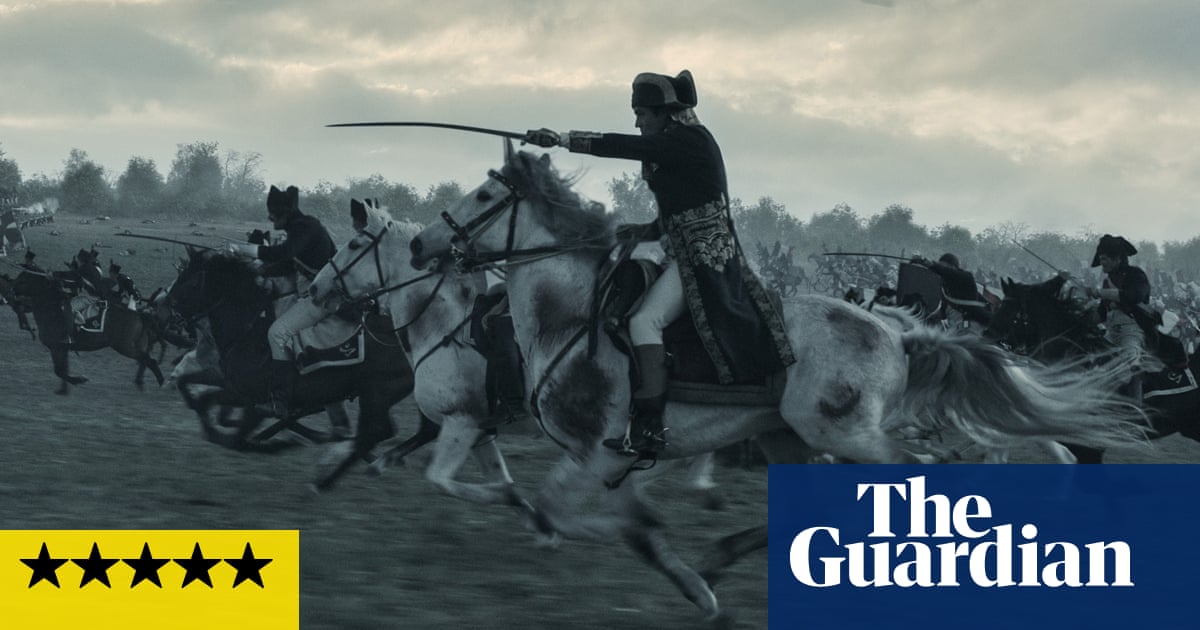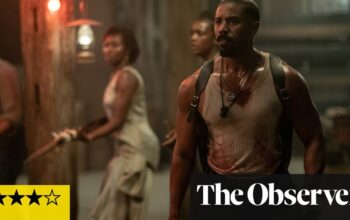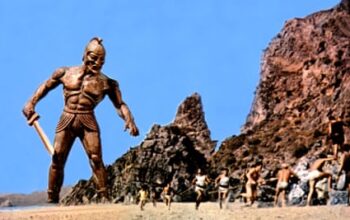
M
Several directors have attempted to emulate Napoleon’s path to glory, but perhaps it is only in the face of defiant defeat that true glory can be found. However, Ridley Scott – the Wellington of cinema – has crafted a wildly entertaining film, a fast-paced biopic that spans two and a half hours. Scott skillfully avoids getting bogged down in either historical accuracy or philosophical depth, a challenge that has hindered other filmmakers.
In a playful manner, Scott imagines Napoleon attacking the pyramids during the Egyptian campaign and witnessing the execution of Marie Antoinette (but not the mistreatment of Louis XVI by the Tuileries mob, which he may have actually seen). In addition, Scott and his screenwriter David Scarpa choose not to mention Napoleon’s reestablishment of slavery in the French colonies. However, the most noteworthy aspect is Joaquin Phoenix’s sly depiction of the doomed emperor, with his mocking expression perfectly suited to the iconic bicorne hat and cheerful tricolour cockade. Phoenix portrays Napoleon as both a brilliant military strategist and a flashy peacock, who also happens to be skilled at riding horses. While others may portray Napoleon as a solitary dreamer, Scott presents him as one half of a tumultuous power couple, deeply and despairingly in love with Vanessa Kirby’s practical and sensual Josephine. In this way, Scott transforms their relationship into the Burton and Taylor of imperial France.
In 1970, Rod Steiger portrayed Napoleon as a tired leader of a gang, trading insults with his advisor in Sergei Bondarchuk’s film Waterloo. In 1956, Herbert Lom depicted him as a ridiculous figure in King Vidor’s War and Peace, unable to accept that he no longer holds power in Russia. In Abel Gance’s 1927 silent masterpiece, Albert Dieudonné portrayed him as a thin and devout figure comparable to Joan of Arc or Rasputin. However, in Phoenix’s interpretation, he is a satirist and cunning mastermind, an outsider who observes and exploits the weaknesses of others. He is a capitalist entrepreneur who seizes power and manipulates others, using paper money as a tool. While others may be labeled the “Napoleon of Crime,” Phoenix’s portrayal of Napoleon already embodies this persona.
Scott stages a thrilling action set piece for Napoleon’s first great achievement as a young artilleryman: the audacious attack on the British at Toulon in 1793, which cemented his reputation as a strategic master and a hater of the English. Scott bookends the whole thing imagining a defeated Napoleon’s interview with Wellington aboard the HMS Bellerophon, insouciantly congratulating him on the quality of breakfast served to the Royal Navy.
Britain’s naval dominance causes Napoleon to feel inferior, mirroring Commodus’ jealousy in the film Gladiator. In his coronation as emperor, Napoleon resembles Commodus with a crown that doesn’t quite fit. With the support of Barras, he navigates the conflicting forces of revolution and royalism to become a powerful ruler, depicted by Scott through his brutal suppression of the mob with weapons.
Napoleon has long been an appealing symbol and icon. Since Tolstoy’s time, the retreat from Moscow and Napoleon’s defeat have been seen as a metaphor for Russia’s miraculous salvation, akin to the resurrection itself. Hitler was intrigued by Napoleon, but even after the war, there remains a cult following for those who wish to overlook the horrors of the 20th century and revive the romantic idea of warfare. In Kubrick’s abandoned film project, there may have been expectations for Napoleon to carry significant weight and meaning. However, Ridley Scott’s intention is not the same; he does not hold the audience captive with philosophical implications and instead offers traditional pleasures of spectacle and excitement. Phoenix’s performance is key, robust like a glass of burgundy, as he preens, broods, seethes, and ultimately triumphs.
Ignore the advertisement for the newsletter.
after newsletter promotion
Source: theguardian.com


